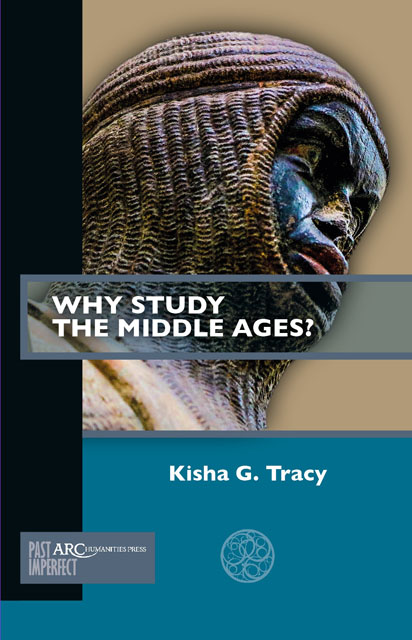Book contents
- Frontmatter
- Contents
- Introduction: The Middle Ages and the Liberal Arts
- Chapter 1 The Middle Ages and the Humanities
- Chapter 2 The Middle Ages and STEM
- Chapter 3 The Middle Ages and the Social Sciences
- Chapter 4 The Significance of Studying the Middle Ages
- Conclusion: The Connections among the Arts
- Further Reading
Introduction: The Middle Ages and the Liberal Arts
Published online by Cambridge University Press: 06 December 2022
- Frontmatter
- Contents
- Introduction: The Middle Ages and the Liberal Arts
- Chapter 1 The Middle Ages and the Humanities
- Chapter 2 The Middle Ages and STEM
- Chapter 3 The Middle Ages and the Social Sciences
- Chapter 4 The Significance of Studying the Middle Ages
- Conclusion: The Connections among the Arts
- Further Reading
Summary
[I]f you look at them in the light of the other things to which they are joined, and if you begin to weigh them in their whole context, you will see that they are as necessary as they are fitting. Some things are to be known for their own sakes, but others, although for their own sakes they do not seem worthy of our labor, nevertheless, because without them the former class of things cannot be known with complete clarity, must by no means be carelessly skipped. Learn everything; you will see afterwards that nothing is superfluous.
Hugh of Saint Victor, DidascaliconStudents and teachers of the premodern are often asked to answer the question about the relevance of these subjects, particularly by skeptics who might doubt such relevance exists. Relevance, however, has certain associations. In particular, it infers a focus on the modern, indeed sometimes to the point of excluding anything that seemingly doesn't have a readily-obvious “purpose” in modern life or to a presentist point of view. Due to that bias, the more productive conversation is one of significance. Instead of considering whether the study of the premodern is appropriate, rather we should think about its worthiness for study. Instead of defending, we should provide evidence. As Hugh of Saint Victor wrote in the eleventh century, “Nothing is superfluous.” We just need to find its meaning.
Liberal Arts in the Middle Ages
In preparing to teach a course focused on the definition and value of the liberal arts and sciences, I began reading Fareed Zakaria's In Defense of a Liberal Education. From the beginning, I admired its accessibility for a general audience, but then reaching its second chapter on the history of liberal education, I came across this phrase that followed a paragraph on Alcuin and the court of Charlemagne: “Even during the Dark Ages, medieval monasteries kept alive a tradition of learning and inquiry.” My immediate response was one of indignation. First, there was the use of that phrase medievalists despise: the Dark Ages. To add insult to injury, there was that damning addition of “even,” as if the very idea of learning in the Middle Ages is impossible to imagine.
- Type
- Chapter
- Information
- Why Study the Middle Ages? , pp. 1 - 20Publisher: Amsterdam University PressPrint publication year: 2022

